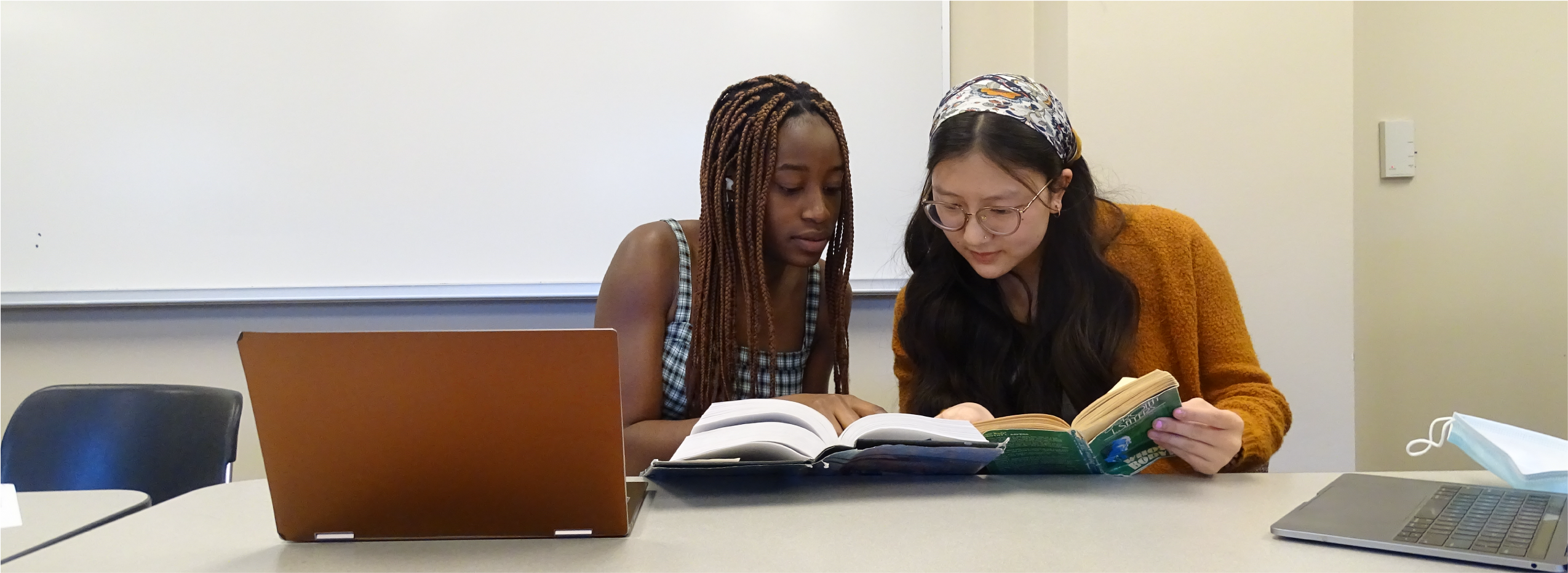Upcoming Courses
SPRING 2025
GSS 1001: Commons iSeminar – She’s a witch! Witches on Film
Lowe, Jessica C.
1.0 hrs | Seminar | M
04:40p – 05:30p | 01/06/2025 – 01/06/2025
04:40p – 06:40p | 01/13/2025 – 01/13/2025
04:40p – 06:40p | 01/27/2025 – 01/27/2025
04:40p – 06:40p | 02/10/2025 – 02/10/2025
04:40p – 06:40p | 02/24/2025 – 02/24/2025
04:40p – 06:40p | 03/17/2025 – 03/17/2025
04:40p – 06:40p | 03/31/2025 – 03/31/2025
04:40p – 06:40p | 04/14/2025 – 04/14/2025
Who was the witch? The idea of the satanic witch, in particular, was born in fifteenth-century Europe and was grimly instrumental in the witch-hunts that followed in the sixteenth and seventeenth centuries. The figure of the witch contained within it fears of unruly gender, aberrant theological belief, and defiance of lawful authority. But the idea of witch didnt stop when trials ceased; in both fairy tales and horror, the early modern witch lives on. In this seminar, we will discuss both early modern historical sources and modern films that depict witches and witch-hunts. We will ask what it means that historical fears are now our fictional entertainment, and we will examine what has changed in depictions of the witch. Screenings of films, including horror films, will be required for this course. For first-year students only; upper division students may enroll with permission from the professor.
GSS 1150: Sex and Gender in Everyday Life
Lowe, Jessica C.
Section 01: 3.0 hrs | Lecture | MWF | 12:20p – 01:10p
Section 02: 3.0 hrs | Lecture | MWF | 09:05a – 09:55a
Rose, Kristin E.
Section 03: 3.0 hrs | Lecture | TR | 01:15p – 02:30p
GSS 1150W: Sex and Gender in Everyday Life
Simplican, Stacy C.
Section 01: 3.0 hrs | Lecture | MWF | 12:20p – 01:10p
GSS 1160: Sex and Society
Gutman, Jennifer M.
Section 01: 3.0 hrs | Lecture | TR | 11:00a – 12:15p
Section 02: 3.0 hrs | Lecture | TR | 01:15p – 02:30p
GSS 1160W: Sex and Society
Kinard, Amanda M.
Section 01: 3.0 hrs | Lecture | TR | 09:30a – 10:45a
Threadcraft, Shatema
Section 02: 3.0 hrs | Lecture | MWF | 01:25p – 02:15p
Section 03: 3.0 hrs | Lecture | MW | 02:30p – 03:45p
GSS 2242: Women Who Kill
Schwarz, Kathryn L.
Section 01: 3.0 hrs | Lecture | TR | 02:45p – 04:00p
GSS 2267: Seminar on Gender and Violence
Tuttle Bell, Cara
Section 01: 3.0 hrs | Seminar | TR | 02:45p – 04:00p
GSS 2271: Gender, Space, and Climate Imaginaries
Rose, Kristin E. | Gamble, Julie
Section 01: 3.0 hrs | Lecture | TR | 11:00a – 12:15p
GSS 2612: Lesbian, Gay, Bisexual, and Transgender Studies
Jones, Hannah
Section 01: 3.0 hrs | Lecture | TR | 09:30a – 10:45a
GSS 2616: Introduction to Intersectional, Feminist, Queer, and Trans Theory
Navarro, Kristen M.
Section 01: 3.0 hrs | Seminar | TR | 01:15p – 02:30p
Intro to Intersectional, Feminist, Queer, and Trans Theory
GSS 2617: Supernatural Sexuality
Lowe, Jessica C.
Section 01: 3.0 hrs | Seminar | MWF | 01:25p – 02:15p
GSS 3250: Contemporary Women’s Movements
Simplican, Stacy C.
Section 01: 3.0 hrs | Lecture | MWF | 11:15a – 12:05p
GSS 3850: Independent Study—as requested basis, requires approval from department
GSS 3880: Internship Training—as requested basis, requires approval from department
GSS 4950: Capstone Colloquium-—as requested basis, requires approval from department
GSS 4960: Senior Seminar
Navarro, Kristen M.
Section 01: 3.0 hrs | Seminar | T | 03:30p – 06:00p
Section 02 3.0 hrs | Seminar | M | 03:30p – 06:00p
GSS 4998: Honors Research
Covington, Elizabeth R. | Rose, Kristin E.
Section 01: 3.0-6.0 hrs | Research
GSS 8989: Graduate Independent Study—as requested and with department approval

